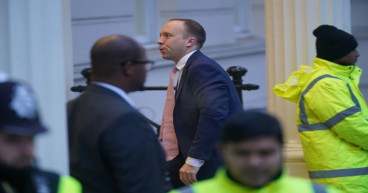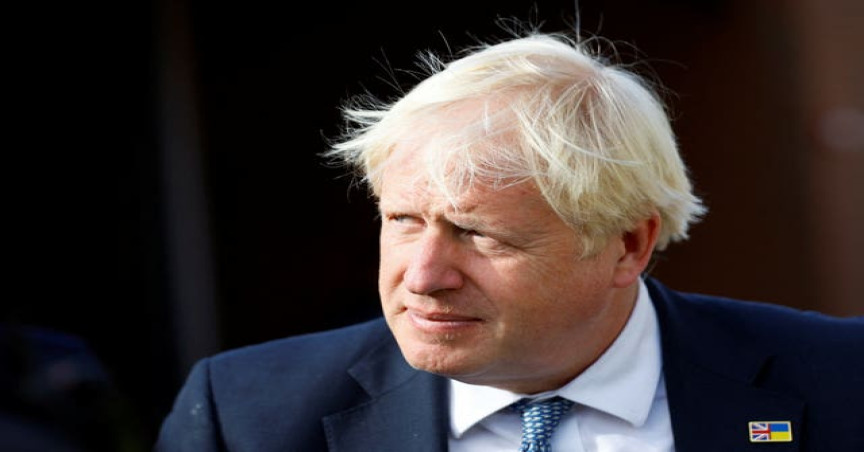AAPL 169.89 0.5147% MSFT 399.04 -2.4495% GOOG 157.95 -1.9553% GOOGL 156.0 -1.9669% AMZN 173.67 -1.6535% NVDA 826.32 3.7087% META 441.38 -10.5613% TSLA 170.18 4.9652% TSM 136.58 2.7149% LLY 724.87 -1.0011% V 275.16 0.0509% AVGO 1294.42 2.9917% JPM 193.37 0.1502% UNH 493.86 1.3462% NVO 125.79 -0.2933% WMT 60.21 0.5679% LVMUY 167.91 -2.1618% XOM 121.35 0.2478% LVMHF 837.0 -2.6461% MA 462.11 -0.0843%
General news
Lives would have been saved with an earlier lockdown – Hancock

Image Source: PAMEDIA
Matt Hancock has said that “many, many lives” would have been saved if the nation had gone into the first coronavirus lockdown three weeks before it actually did.
The former health secretary said, with the benefit of hindsight, the nation should have gone into lockdown on March 2 2020, instead of three weeks later on March 23 2020.
But he defended the Government’s decision at the time, saying that there was still “enormous uncertainty” and only 12 cases had been identified in the country by this point.
Matt Hancock said that he regarded February 28 2020 as the “moment that the centre of Government, led by the Prime Minister, really started to come into action”.
But he also described how he felt that Downing Street was stopping then-prime minister Boris Johnson from saying anything publicly about the virus in February 2020.
He also claimed he was not allowed to give radio interviews on the subject.
Referencing Mr Hancock’s witness statement inquiry, counsel Hugo Keith KC asked if he believed No 10 was stopping Mr Johnson from speaking about Covid-19 due to “a concern that it would be seen to be over-reacting”.

Mr Hancock confirmed this, adding that he was told on the evening of February 27 that based on divs at the time there was a “reasonable worst case scenario of just over half a million people dying”.
He said February 28 “was an important day” in the pandemic response.
At the time, he said, he was “still not being allowed to communicate” and was “not able to go on … certain radio shows including the Today programme, which is a very important part of the national debate”.
Mr Hancock told the probe he spoke to Mr Johnson on the phone: “It was quite a moment. I came out and I said: ‘Prime Minister, you need to chair a Cobra and we need to be able to communicate properly, including on all of the programmes instead of having this political boycott.’
“And that led to – I wanted a Cobra that day, and I told him he should chair a Cobra immediately. In the end, we had the Cobra on the Monday, which I think was March 2.
“Over that weekend, I went out and communicated in public about all the things that we might have to do. We might have to close some schools. We might have to shut down whole cities. ‘I don’t rule anything out,’ I said.”
Meanwhile, he told the UK Covid-19 public inquiry that “fewer than a tenth of the number of people would have died in the first wave” had the nation gone into lockdown on March 2.
Figures show that there were 57,896 deaths involving Covid-19 which occurred in the UK during the first wave of the pandemic, from the start of the crisis to the end of August 2020.
He said: “With hindsight… if at that moment, we’d realised that it was definitely coming and the reasonable worst case scenario was as awful as it was, that is the moment that we should, with hindsight, have acted.
“And we had the doctrine that I proposed, which is as soon as you know you have got to lock down, you lock down as soon as possible, then we would have got the lockdown done over that weekend in on March 2, three weeks earlier.

“There’s a doubling rate at this point estimated every three to four days, we would have been six doublings ahead of where we were, which means that fewer than a tenth of the number of people would have died in the first wave.
“At the time, there was still enormous uncertainty, the number of cases was still very low – in fact, there were only 12 cases reported on March 1 – and the costs of what I’m proposing were known and huge.
“So I defend the actions that were taken by the Government at the time, knowing what we did, but with hindsight, that’s the moment we should have done it, three weeks earlier, and it would have been, would have saved, many, many lives.
“Having obviously thought about this and reflected on this a huge deal over the last few years, the first moment we realistically could have really cracked it was on March 2, three weeks earlier than we did.”